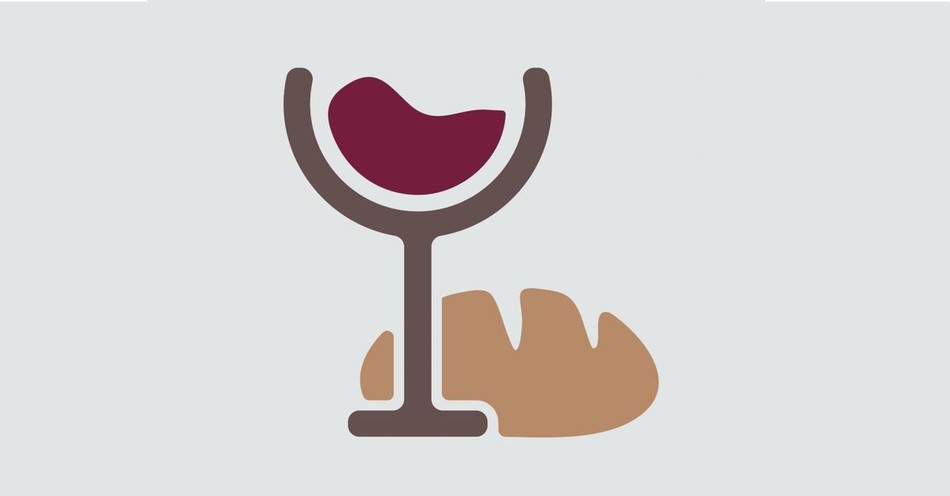The “Lord’s Supper” (also called Holy Communion and Eucharist) is one of the most important church ordinances for the Christian. Both the Gospels of Matthew (26:26-29) and Mark (14:22-25) mention the institution of the Lord’s Supper. But is there ever a time when someone, even a believer, should not take the bread and the cup?
Who should (and should not) partake of the Lord’s Supper?
Communion in the most general sense is the believer’s personal union with Jesus Christ. The Bible makes it clear that “whoever, therefore, eats the bread and drinks the cup of the Lord in an unworthy manner will be guilty concerning the body and blood of the Lord” (1 Corinthians 11:27).
Each person contemplating participating in the Lord’s Supper is to “examine himself, then, and so eat of the bread and drink of the cup” (1 Corinthians 11:28). The Lord’s Supper is to be prepared and observed by saved believers. Key questions to ask yourself are:
1. Do I accept that the Word of God was made flesh, dwelt among us, and suffered in human form?
2. Do I believe that the shed blood of Jesus was to remove the stain of sin and make an atonement to God?
The saved person with sin in his or her life should not partake of the sacraments of the Lord’s Supper. Additionally, the lost or the unsaved should also not participate in the Lord’s Supper.
3. Do I have unconfessed sin my life right now that I need to repent from?
It is advisable for the believer to pray prior to the Lord’s Supper to repent of any unconfessed sin.
4. Am I taking the cup and the bread just because I’m hungry?
The person who is physically hungry should not use the sacraments of the Lord’s Supper to satisfy the hunger. Many modern, Western churches use tiny portions of food and drink as symbols in the Lord’s Supper, so this requirement may be difficult for modern church goers to identify with. Paul explained in 1 Corinthians 11:33-34, “so then, my brothers, when you come together to eat, wait for one another – if anyone is hungry, let him eat at home – so that when you come together it will not be for judgment.”
Brian Hedges’ article is a resource to discern communion for the unbaptized believer.
What are ramifications of taking the Lord’s Supper unworthily?
We are taught in 1 Corinthians 11:29-30, “for anyone who eats and drinks without discerning the body eat and drinks judgment on himself. That is why many of you are weak and ill, and some have died.”
Believers are to whom Paul is speaking. Therefore, eternal damnation is not contemplated. Those who are saved may suffer chastisement or punishment by making no distinction between the Lord’s Supper from that of an ordinary meal. Many in the church at Corinth were afflicted with sickness and disease stemming from their unworthily partaking of communion.
What is the significance of the Lord’s Supper?
Jesus instituted the ordinance of the Lord’s Supper following the Passover with the disciples. He knew His departure was near and the sacraments were to be utilized for the sole purpose of His remembrance.
The Lord’s Supper Is Observed Regularly
Although churches within the Christian faith set aside a regular schedule for its observance, the frequency varies from church to church. Some churches observe it weekly, some monthly, and others quarterly. The Bible does not prescribe how often it should be observed, only that when we do “eat this bread and drink this cup, you proclaim the Lord’s death until he comes” (1 Corinthians 11:26).
The Lord’s Supper Symbolizes Christ’s Body and Blood
The components of the Lord’s Supper are comprised of the bread and the wine. Christ taught the bread symbolized “[his] body which is for you.” In the same fashion, he took the cup of the wine and said, “This cup is the new covenant in my blood” (1 Corinthians 11:23-25).
The Lord’s Supper Represents Unity with Christ and the Church
Interestingly during the Passover, Jesus informed the disciples, “Truly, I say to you, one of you will betray me.” This revelation caused the disciples to concern themselves as to whom it shall be. The Lord followed by answering, “he who has dipped his hand in the dish with me will betray me” (Matthew 26:23).
Compare this discourse with the discussion surrounding the institution of the Lord’s Supper. In 1 Corinthians 11:18, Jesus mentioned the divisions and discord among the people when they came together as a church. Then in 1 Corinthians 11:20-21, He informed them, “when you come together, it is not the Lord’s supper that you eat. For in eating, each one goes ahead with his own meal. One goes hungry, another gets drunk.”
Jesus seems to parallel the division among the disciples caused by Judas with the discord among the churches. With the Lord’s Supper, the believer shares in both the sorrows and the joys of Jesus Christ. He suffered from afflictions, just as the believer has the reproaches of the world and wounds of life.
The Lord’s Supper can be used not only to strengthen the individual believer, but it also can unite a church body with its observance. Another aspect of the Lord’s Supper is to provide fellowship among believers. Communion can be a pure fellowship and allows believers to unite with our relationship with Jesus as the focus.
Spurgeon, in his sermon “Communion With Christ and His People,” preached the believer must “first enjoy union with Christ and with His Church or else we cannot enjoy communion.”
Chad is a believer in Christ, attorney at law, wannabe golfer, runner, dog lover, and writer. He enjoys serving his church as a deacon and Sunday School teacher. You can find him on Facebook, Twitter, and at his golf devotion par3sixteen.com. He and his wife Brandi reside in Tennessee with their canine son Alistair.
Photo Credit: Getty



